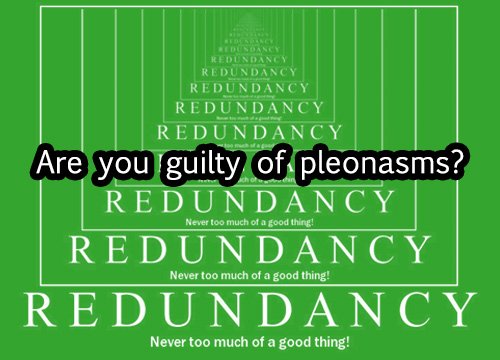Many English people are guilty of pleonasms (culpable de pleonasmos). There is a golden rule in English that says keep it simple so that every man and his dog (un dicho que significa todo el mundo) can understand you without difficulty.
This means saying something in as few words as possible. Here are some examples of the crime (crimen) of pleonasm.
- It is obvious (obvio) that Mr. Sanchez is a loser (perdedor). “It is obvious” is a pleonasm. Why not say “Mr. Sanchez is a loser”. Why use 9 words when 5 words communicate the same?
- As a matter of fact (de hecho), Mr. Morales is a good businessman. The pleonasm is “as a matter of fact”. If it is a fact, then it is enough to say “Mr. Morales is a good businessman”. Why use 5 extra words?
- For the most part (en la major parte), Brexit will be good for Britain. It is better to say “Brexit will be good for Britain”. Why use four extra words? Life is short!
- He touched the nape (la nuca) of his neck. There is only one nape, and that is at the back of your neck. So it is better to say “he touched his nape”.
- The government veered off course. To veer (cambiar de dirección, rolar, girar) means change direction. “Off course” means to veer. So why not say “the government veered”?
Pleonasm is a mistake or fault of style. In Greek it means “excessive”. In Spanish, you could also say “redundante”.
Don´t use more words than necessary. Do not be pleonastic (pleonástico)!

















